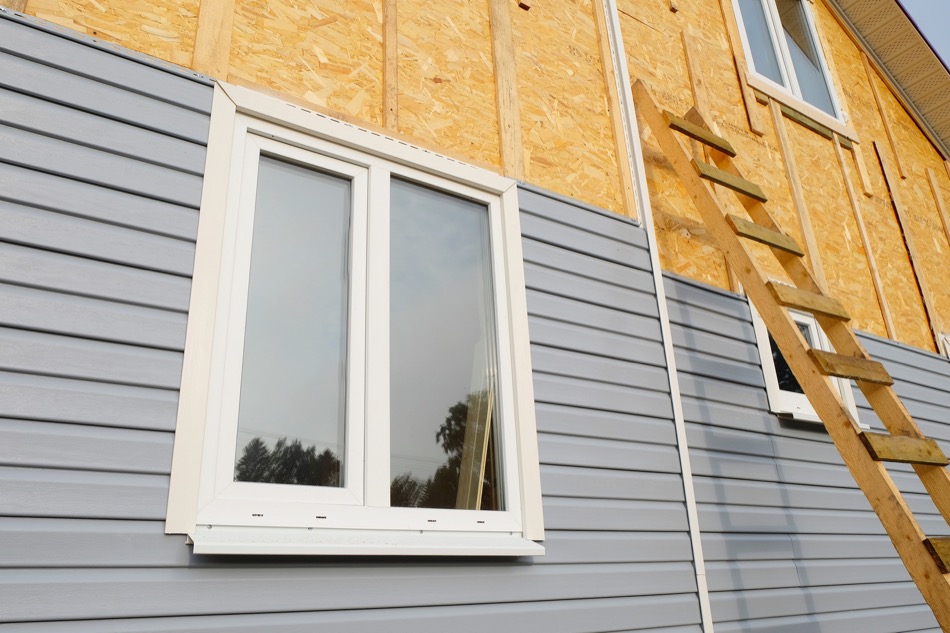4 Common Types of Home Siding
Posted by Ron Neal on Wednesday, June 19th, 2019 at 10:47am.
 When it comes to one of the more lucrative DIY home projects a homeowner can do, siding is certainly up there. The average returns are solid, meaning an owner can recoup the vast majority of their funds by increasing the resale value. Plus, all residents get to enjoy the protection and beauty of the siding while they actually live in the home. See which materials are available, and how their pros and cons should affect a homeowner's decision.
When it comes to one of the more lucrative DIY home projects a homeowner can do, siding is certainly up there. The average returns are solid, meaning an owner can recoup the vast majority of their funds by increasing the resale value. Plus, all residents get to enjoy the protection and beauty of the siding while they actually live in the home. See which materials are available, and how their pros and cons should affect a homeowner's decision.
Metal
Metal is beloved by homeowners for its price and practicality. Metal is so durable that it can hold up to even major damage. From nasty storms to vandalism, metal is known to keep its structural integrity through thick and thin. Plus, metal is available in more colors and styles than ever before. The biggest disadvantage of metal is its tendency to rust after water exposure. Depending on the type of metal used, rust can happen rather quickly if it's not addressed. Also, if homeowners opt for aluminum siding, it's possible the siding may dent after a hail storm.
Wood
Wood appeals to homeowners for a number of reasons:
- Warmth: Wood immediately welcomes everyone in. Since childhood, people associate wood with the storybook cottages of their favorite fairytales.
- Installation: This material has a relatively straightforward installation process, helping homeowners to save on costs and time.
- Efficiency: Wood tends to keep the cold air in during the summer and the warm air in during the winter. Its energy efficiency can pull in future buyers who want to stick to their budget.
Vic West homeowners who choose wood need to watch out for insects, fire, and water. Pre-treated wood will certainly stand up to these threats better than raw wood, but homeowners may still have a considerable amount of maintenance if they live in a vulnerable area.
Bricks
Brick can be just as evocative as wood is when it comes to adding charm to the home. This siding material also comes with the added bonus that it's more durable than wood. Brick is available in a variety of styles, making it easy to choose something that works with the structure of the home and the overall aesthetic vision of the street. (Homeowners who want to drown out the sounds of the outdoors should definitely splurge for brick for its soundproofing abilities.) The only real disadvantage of brick is its cost to both buy and repair. If the structure sustains mortar damage, it may be cost-prohibitive to fix.
Stucco
Stucco on homes is known to fare well in extreme weather, something that wood or aluminum may not be able to do. Its colors won't start to fade when the home bakes in the sun or when it's subjected to torrents of rain in the spring. Homeowners can expect it to last for up to 100 years. It can also be an artistic choice for the home, helping to add some personality to an otherwise unremarkable structure. Homeowners should be prepared for this choice to be a rather permanent one. Stucco is not easy to repaint, and if the color is too controversial, it could turn future buyers off.
Choosing a siding material can be a fun project, but it helps to understand how each option will work with a homeowner's budget, style choices, and future resale value. Consider the benefits against the potential drawbacks before making a decision.
Leave a Comment
 - Copy.png)
The Neal Estate Group is your #1 source for all of your Victoria BC real estate needs. Get in touch with us online or by phone at (250) 386-8181 to speak with a Victoria real estate buying or selling expert today. With decades of experience as a top selling Victoria REALTOR® and ranked in top 1% globally with over 5,000 transactions and $1 Billion SOLD, Ron Neal & The Neal Estate Group have the industry experience and market knowledge to help you make smart and informed buying or selling decisions.
